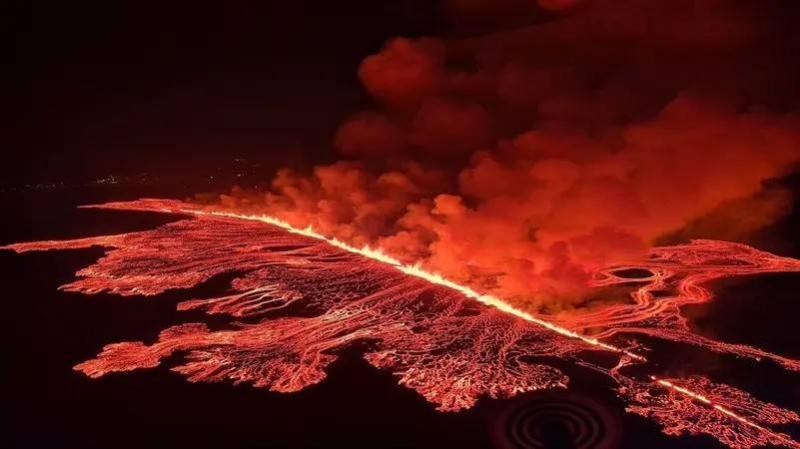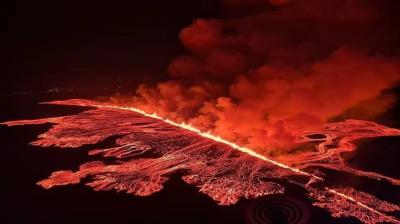Scientists and researchers from three universities have warned that the new wave of volcanic eruptions, most of which began in 2021 on the Reykjanes Peninsula in Iceland, "could last for decades or perhaps centuries" and cause significant and diverse disruptions, according to local and international media, including Thursday's edition of the British newspaper "The Times." The peninsula, which is home to 70% of Iceland's 400,000 adult population, as well as the only operational international airport year-round and several geothermal power stations, has experienced eight eruptions in the past three years.
The area's volcanoes were dormant for nearly 800 years, approximately from 1210 to 1240 during a period known as the Reykjanes fires, but they reawakened three years ago, with the latest eruption starting on May 29 and declared over only this Monday. This activity led to the evacuation of thousands of residents and tourists from towns and resorts in the area, as reported by scientists from the University of Iceland, the University of Oregon, and their counterparts from Uppsala University in Sweden. They analyzed geochemical data and seismic activity, predicting that eruptions "could continue and cease for years and even decades," warning that the timeframe could extend to "possibly centuries."
The scientists sought to determine whether the volcanic eruptions on the peninsula originated from a single common source of magma or from several smaller sources, in addition to estimating the depth of the magma sources. Through analysis of the chemical composition of lava from two different volcanoes on the peninsula, which has eight volcanic sites, researchers concluded that the volcanoes have "a shared magma storage area beneath the peninsula," indicating a large reservoir of molten rock within the Earth's crust that "is fed by the melting of deeper rocks in the mantle."
Researchers stated that considering Iceland's location over an active mid-Atlantic ridge between two continental plates, the hot spot located beneath the island, known as the Iceland plume, "will have no problem pushing" magma to the surface. Scientists from the University of Oregon said in a press release, citing research by volcanologist Elia Bendeman published in the scientific journal Terra Nova, that this could lead to "eruptions lasting for decades, with hundreds of square miles of magma emerging." The study suggests that there is "renewed eruptive activity on the Reykjanes volcanic belt after 781 years of dormancy," and warns: "Based on previous volcanic behavior, it is likely that this pattern will continue over the coming centuries, posing a significant risk to local populations" and important infrastructure in the Reykjanes Peninsula and its surroundings.
Nonetheless, predicting the timing and duration of volcanic activity is extremely difficult. Bendeman stated, "Nature is never regular. We don’t know how long or how much this will last over the next ten or even hundred years; a pattern will emerge, but nature always has exceptions and anomalies."




